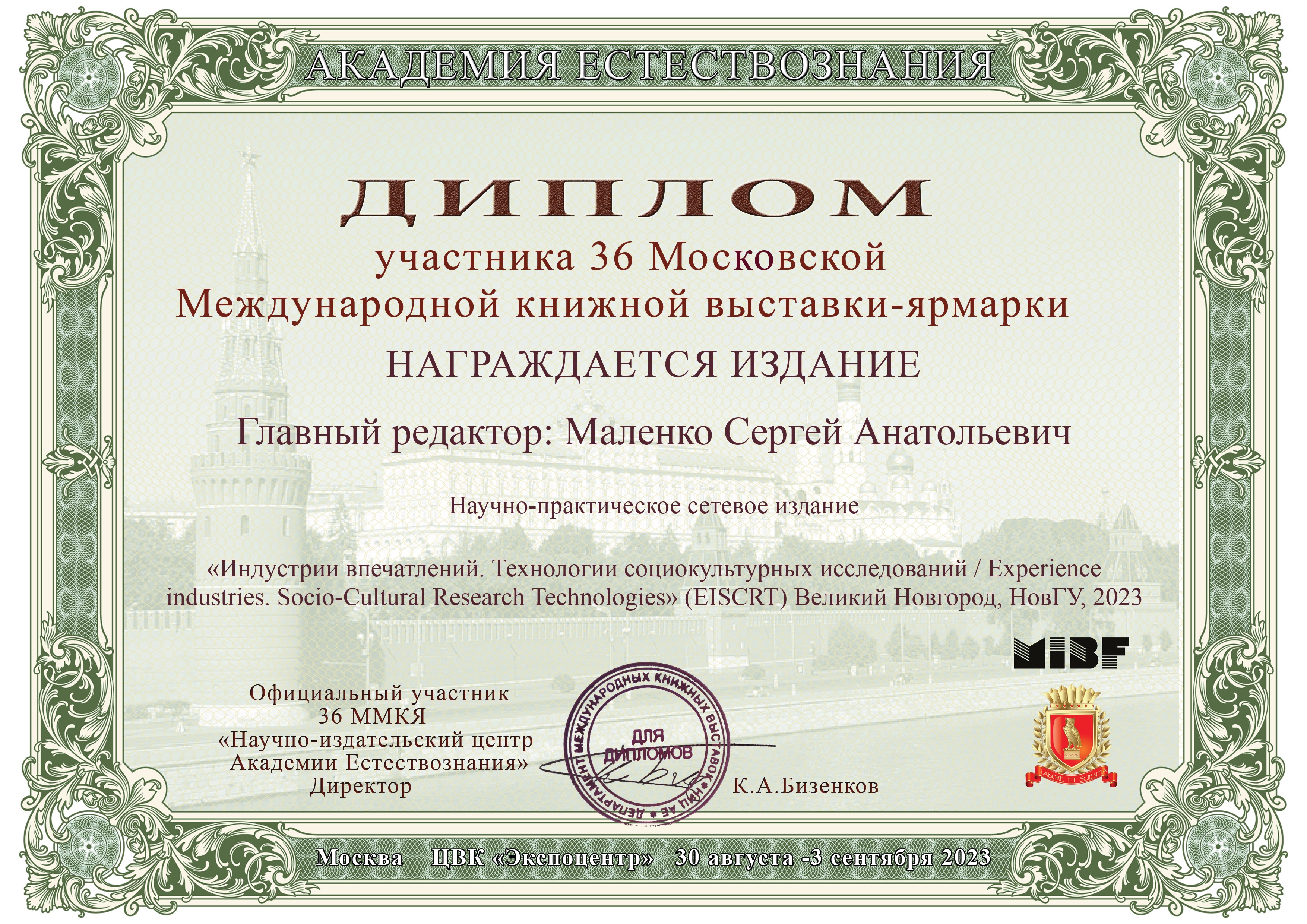INFERNO OF YALTA (DEMONIZATION OF THE TOPOS OF THE CRIMEAN (YALTA) CONFERENCE OF 1945 IN THE ANGLO-SAXON HISTORICAL EXPERIENCE)
DOI:
https://doi.org/10.34680/EISCRT-2023-3(4)-44-64Keywords:
Yalta-45, chronоtope, topochrone, power, aesthetic politicsAbstract
The article discusses the technology that leads to the formation of anecrismitic pragmatic aesthetic experience. The formation of the historiography of the Anglo-Saxon horizon of vision of the events of the Yalta Conference in February 1945 is taken as an empirical material. The theory is based on the thesis about the ontological difference in the perception of the “Yalta world” in the Soviet-Russian aesthetic experience and its Anglo-Saxon counterpart. At the same time, the procedures for harmonizing subjective experience and historical facts follow two mutually exclusive vectors: the demonization of “Yalta” in the West and the “angelization” of this event in the Soviet-Russian segment. The conclusion is made about the demonization of the Yalta topos in the Anglo-Saxon tradition through concepts related to Hades and death. Chronos is demonized by appealing to the gray timelessness of Soviet pseudo-culture. Separately, there is a line of types of a diverse demonic component inherent in the members of the Soviet delegation from and Stalin to the interpreter V. Pavlov. Recommendations are formulated to strengthen the domestic pragmatic aesthetic experience by forcing the creation of historical feature films and novels.
For citation:
Shevchenko, O. K. (2023). Inferno of Yalta (demonization of the topos of the Crimean (Yalta) conference of 1945 in the anglo-saxon historical experience). Experience industries. Socio-Cultural Research Technologies (EISCRT), 3 (4), 44-64. (In Russian). https://doi.org/10.34680/EISCRT-2023-3(4)-44-64








